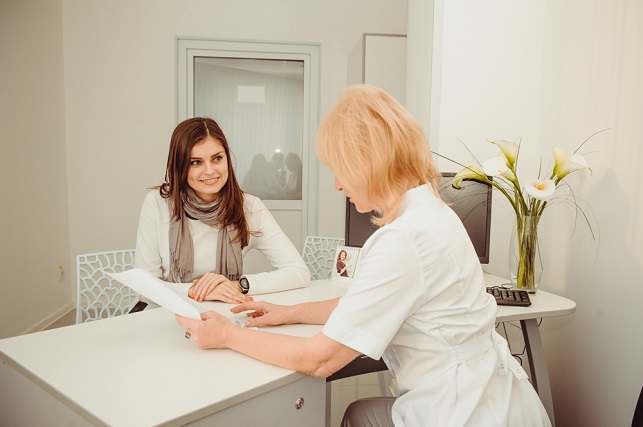If you are considering IVF with donor eggs abroad, Spain is the most popular choice due to high success rates, advanced laboratories, and patient-friendly legislation. Greece, the Czech Republic, and North Cyprus are strong alternatives, offering more flexible age limits, lower costs, and inclusive treatment options for single women and couples.
This guide explains why patients travel for egg donation, how countries differ, and how to choose the destination that fits your age, goals, and legal situation.
Best Countries for Donor Egg IVF – Summary
- Spain: Most popular overall; high success rates, large donor pool
- Greece: Legal flexibility, affordability, treats older patients
- Czech Republic: Transparent pricing, regulated clinics
- North Cyprus: Highest age limits, very flexible regulations
The “best” country depends less on geography and more on your age, donor preferences, and local restrictions at home.
Why Patients Choose Egg Donation Abroad
Many patients explore IVF abroad not because they want to, but because they have to.
Common reasons include:
- Long waiting lists for egg donors at home
- Age limits that exclude women over 45–50
- Restrictions for single women or same-sex couples
- Significantly higher treatment costs locally
Choosing the right country can save tens of thousands of euros and preserve precious time in your fertility journey.
Best Country for Egg Donation: Why Spain Leads
Spain is currently the most sought-after destination for egg donation IVF, representing 44% of all patient inquiries.
Why Spain stands out
- Long experience with donor egg IVF
- Advanced laboratory technology
- Large and diverse donor availability
- Strong patient-centered care for international patients
Spanish clinics are known for:
- Personalized donor matching
- High embryo survival rates
- Streamlined processes for patients traveling from abroad
Who Spain is best for:
Patients seeking high success rates, established clinics, and broad donor choice.
Other Top Countries for Donor Egg IVF
Greece: Flexible and Affordable
Greece accounts for around 20% of patient choices.
Why patients choose Greece:
- Flexible legal framework
- Lower treatment costs
- Inclusive programs for single women and couples
- Excellent success rates
Greece is especially popular among older patients and those facing legal barriers elsewhere.
Czech Republic: Transparent and Regulated
Czech Republic attracts about 14% of patients.
Key advantages:
- Clear, transparent pricing
- Well-regulated fertility clinics
- Strong medical standards
This destination appeals to patients who value predictability, regulation, and cost clarity.
North Cyprus: Maximum Flexibility
North Cyprus is chosen by 11% of patients, largely due to:
- Treatment access up to age 58
- Very flexible regulations
- Options for patients restricted elsewhere
It is often considered when other European countries are no longer an option.
Best Country for Donor Egg IVF Outcomes
Spain, Greece, and the Czech Republic consistently rank highest not only in popularity — but also in clinical expertise.
- Success rates per embryo transfer often exceed 50%, especially with fresh donor eggs
- Modern labs and international-patient services support smoother treatment journeys
- Many clinics offer both exclusive donor programs and shared donor options
Egg Donation Laws in Europe: What Really Matters
Egg donation laws differ significantly across Europe — and these differences often drive the final decision.
Anonymous vs Non-Anonymous Donation
- Anonymous donation allowed: Spain, Greece, Portugal, Czech Republic
- Non-anonymous options: Portugal, UK, USA (under specific conditions)
Most European countries use anonymous donation with phenotype matching, meaning donors are matched to recipients by physical traits rather than identity disclosure.
You could be interested in reading: Egg Donation Laws by Country
How European Egg Donors Are Selected
Across most European clinics, donor selection follows phenotype matching:
- Hair color
- Eye color
- Skin tone
- General physical characteristics
Countries following this approach include:
- Spain
- Greece
- Poland
- Czech Republic
Donor ethnicity considerations
Patients seeking African or Afro-Caribbean donors often find better availability in:
- Spain
- Greece
- Cyprus
These countries typically offer more diverse donor pools than Eastern European destinations.
Egg Donation Program Structures Explained
Egg donation programs vary by country and clinic.
Common structures include:
- Minimum number of oocytes (often 6 eggs)
- Exclusive donor programs (all retrieved eggs)
- Fresh vs frozen donor egg options
Fresh vs Frozen Eggs
- Frozen egg thaw survival: 50–80%
- Fresh eggs often yield higher embryo numbers
- Clinics usually share thaw and survival rates for transparency
In practice, egg quality and lab expertise matter more than egg quantity.
You could be interested in reading: Fresh vs. frozen donor eggs in IVF
Egg Donation Abroad: What International Patients Can Expect
Patients traveling for egg donation IVF typically benefit from:
- Lower overall treatment costs
- Faster access to donors
- Inclusive eligibility rules
- Multilingual clinic support
Countries like Spain, Greece, and Portugal have developed infrastructures specifically for international fertility patients, often offering:
- Virtual consultations
- Airport transfers
- Accommodation coordination
Egg Donation in the USA: How It Compares
United States remains an option for patients who prioritize:
- Non-anonymous donors
- Detailed donor profiles
- Potential donor contact
However:
- Treatment costs are significantly higher
- Many patients now compare US treatment with Spain or Mexico for affordability
Egg Donor Requirements & Screening
While exact numeric criteria vary, donor programs focus on:
- Health screening
- Age eligibility
- Genetic background checks
- Legal compliance
Countries like Spain, Greece, and the Czech Republic maintain strict donor screening standards, ensuring safety and quality while preserving donor anonymity.
How to Decide Which Country Is Right for You
Ask yourself:
- Are there age limits affecting me?
- Do I need anonymous or non-anonymous donation?
- Is cost or speed more important right now?
- Do I need access as a single woman or couple?
There is no universal “best country” only the best match for your situation.
Explore Related Guides
Table of Contents
- 1 Best Countries for Donor Egg IVF – Summary
- 2 Why Patients Choose Egg Donation Abroad
- 3 Best Country for Egg Donation: Why Spain Leads
- 4 Other Top Countries for Donor Egg IVF
- 5 Best Country for Donor Egg IVF Outcomes
- 6 Egg Donation Laws in Europe: What Really Matters
- 7 How European Egg Donors Are Selected
- 8 Egg Donation Program Structures Explained
- 9 Egg Donation Abroad: What International Patients Can Expect
- 10 Egg Donation in the USA: How It Compares
- 11 Egg Donor Requirements & Screening
- 12 How to Decide Which Country Is Right for You
- 13 Explore Related Guides




